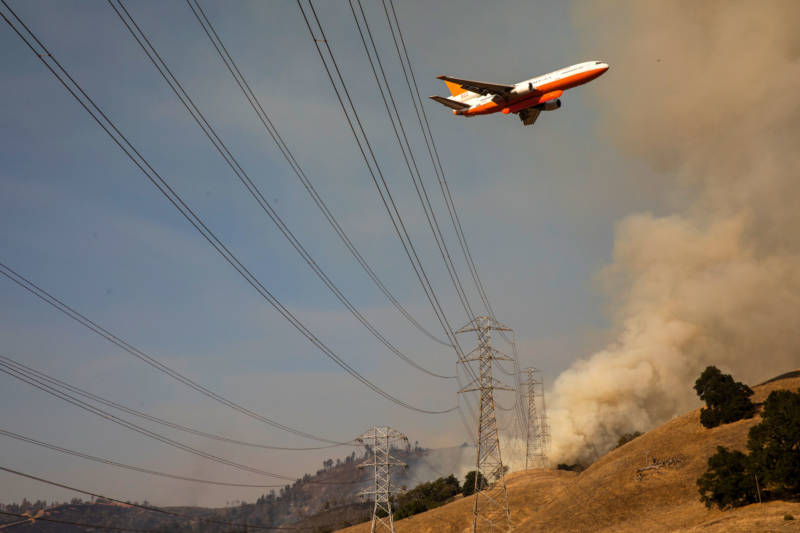Neither Stern nor PG&E attorney Schar sounded enthusiastic about the prospect of such a hearing, which would come with just half a month to go on the company’s probation and only weeks before the scheduled start of a preliminary hearing on Sonoma County’s 33-count criminal complaint arising from the Kincade Fire.
Another option that Alsup raised is that the U.S. Attorney’s Office could make a motion to extend PG&E’s probation. The judge has said several times in court and in written orders that he lacked authority to extend the term of court supervision beyond five years — the maximum prescribed in federal law.
Alsup has made those statements despite an April 2019 brief that prosecutors filed at his request. The filing said “it appears to be an open question” whether the court could impose a new term of probation that would stretch beyond five years. PG&E attorneys, whom Alsup also asked to weigh in, argued that federal law and court precedents bar the judge from extending the probation beyond five years.
The judge told Stern on Monday that if prosecutors make a motion to extend probation, he would give it “serious consideration.” But he added: “I’m not saying I’d grant it. I’m just saying I didn’t realize it was an open question.”
Stern said prosecutors will file a status report with the court later this week outlining how they plan to proceed.
Speaking of the pending criminal cases in Shasta and Sonoma counties, Alsup urged prosecutors and judges in those jurisdictions “not to give up on probation” as part of a sentence if PG&E is found guilty or strikes some sort of plea agreement.
“PG&E needs to be under the probation of somebody,” Alsup said. “PG&E should face probation, and some judge like me up in Shasta County or Sonoma County will be riding herd on them. That’s what needs to happen if we’re ever going to get PG&E under control.”
The judge concluded with an appeal to reporters to pay close attention to the criminal proceedings in Sonoma and Shasta counties.
“Here’s how this is going to play out,” Alsup said. “PG&E will pay millions of dollars to these two counties and walk away as a convicted criminal, but it will not accept probation, and the counties will acquiesce in that. I ask the members of the press to watch that carefully and to hold the DAs accountable to putting this company on continued probation.”
Alsup also heard briefly from Sonoma County resident Will Abrams, whose home was destroyed in the 2017 Tubbs Fire. Abrams, a party to several California Public Utilities Commission proceedings on PG&E’s wildfire safety issues and to the company’s bankruptcy case, has urged the judge to impose a series of new probation conditions.
Among other things, Abrams has asked Alsup to consider ordering major changes to the company’s corporate and financial structure and require the company to adopt new safety accountability measures.
On Monday, Abrams told the judge he should also conduct a hearing to determine whether PG&E should pay restitution to wildfire victims who were part of the $13.5 billion settlement that allowed the company to exit bankruptcy in 2020. Half of that settlement figure is in PG&E stock. Abrams told the judge that restitution is due because fires the company has started since the settlement have depressed the stock’s price, diminished the value of the settlement and harmed him and other wildfire victims.
“Every time they cause a fire, we suffer,” Abrams said.
Alsup agreed with Abrams “that the victims have gotten a raw deal,” but added he wasn’t involved in the bankruptcy case and has no power to change its settlement terms.
He advised Abrams to talk to prosecutors “and see if you can convince the United States attorney to extend probation. I’m not saying I’d do it or not … but if the United States attorney doesn’t move for it, I’m not going to do it, period.”

